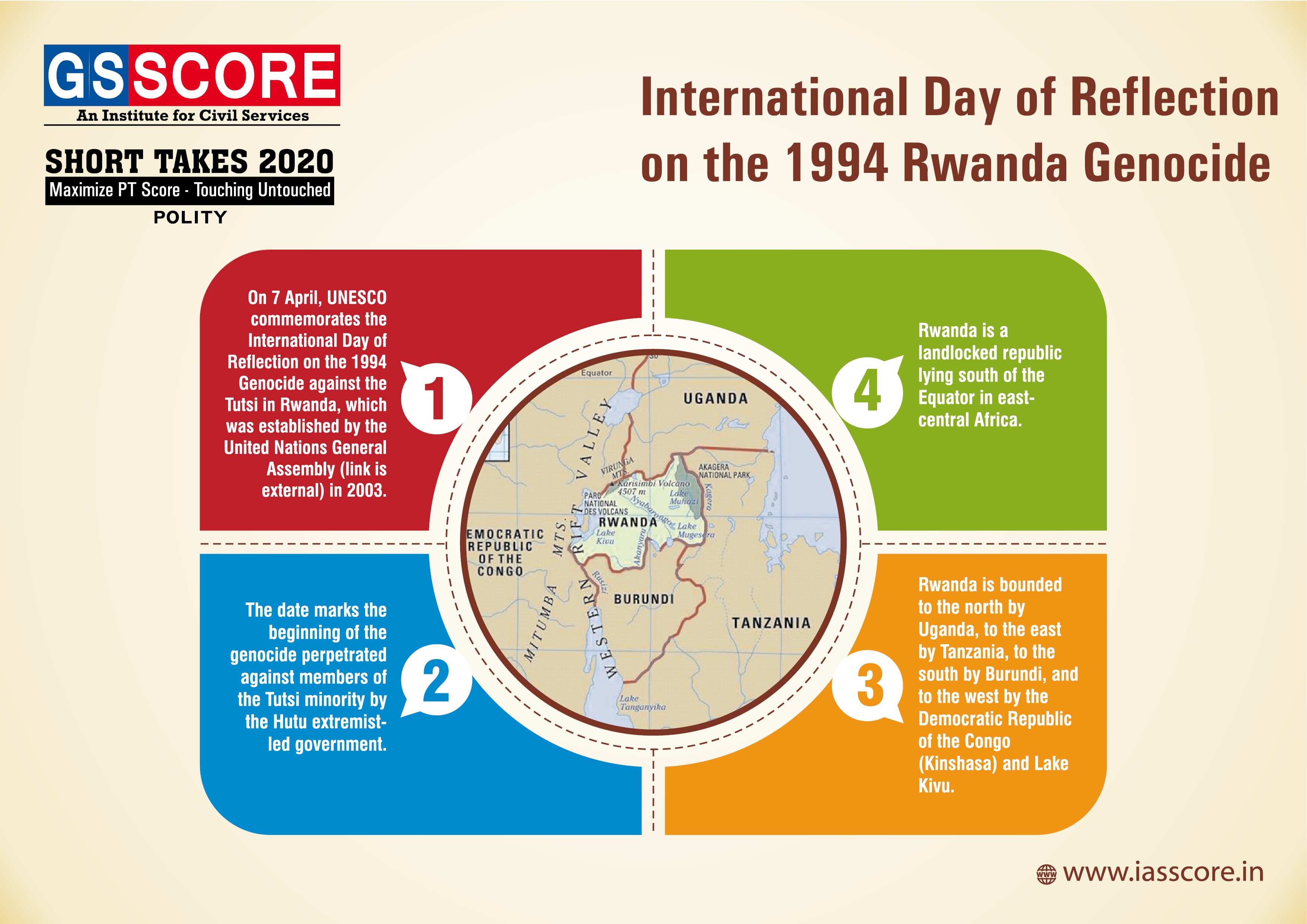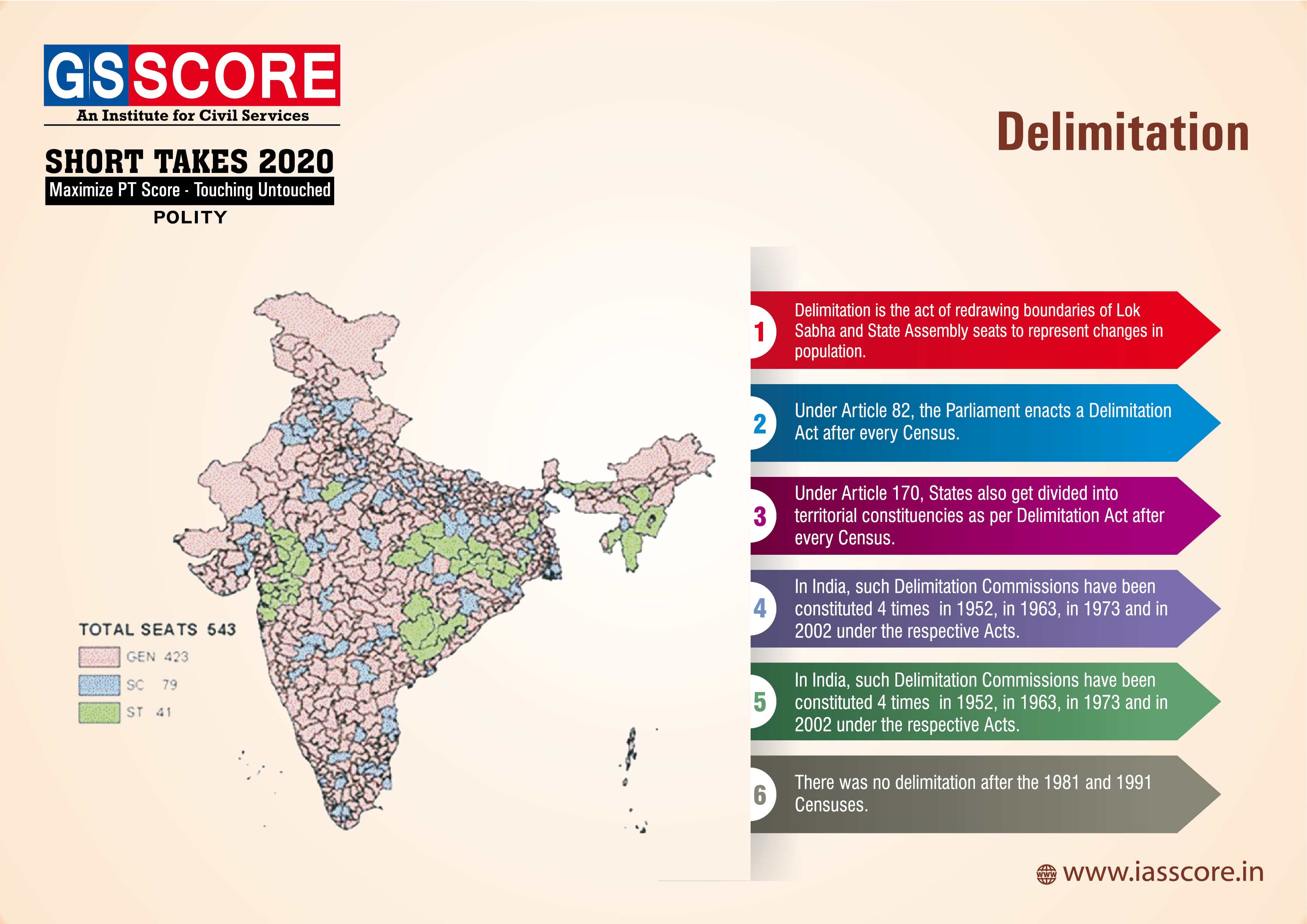Polity: Constitutional other Non-constitutional bodies
Constitutional Bodies
1.Election Commission
- Article 324 deals with the Election Commission. It provides that the power of superintendence, direction and control of elections to parliament, state legislatures, the office of President of India and the office of vice-President of India shall be vested in the election commission.
- It is a permanent and an independent body.
- It is common to both the Central government and the state governments.
- It consists of the chief election commissioner and other election commissioners, as the President may decide from time to time.
- President appoints both the chief election commissioner and other election commissioners.
- The conditions of service and tenure of office of the election commissioners and the regional commissioners shall be determined by the President.
- The chief election commissioner and the two other election commissioners have equal powers and receive equal salary, allowances and other perquisites, which are similar to those of a judge of the Supreme Court.
- They hold office for a term of six years or until they attain the age of 65 years, whichever is earlier.
POWERS AND FUNCTIONS
- It determines the territorial areas of the electoral constituencies throughout the country on the basis of the Delimitation Commission Act of Parliament.
- It prepares the electoral roll and registers all eligible voters.
- It grants recognition to the political parties and hence provides them with election symbols.
- It advises both the President and Governor on matters relating to the disqualifications of the members of Parliament and member of state legislature respectively.
- It supervises the machinery of elections throughout the country to ensure free and fair elections.
2. Union Public Service Commission
- Articles 315 to 323 in Part XIV of the Constitution deals with Union Public Service Commission.
- It deals with the composition, appointment and removal of members along with the independence, powers and functions of the UPSC.
- The UPSC consists of a chairman and other members appointed by the President of India.
- The President on his discretion decides the number of members in the Commission.
- The chairman and members of the Commission hold office for a term of six years or until they attain the age of 65 years, whichever is earlier.
- The Constitution visualises the UPSC to be the ‘watch-dog of merit system’ in India.
- UPSC is only a central recruiting agency.
- The role of UPSC is not only limited, but also recommendations made by it are only of advisory nature and hence, not binding on the government.
- The same structure exist in the state as well, consisting of same organisational set up and same kind of functions confined to that particular state. Although the chairman and members of a SPSC are appointed by the Governor, they can be removed only by the President (and not by the Governor). The President can remove them on the same grounds and in the same manner as he can remove a chairman or a member of the UPSC.
- The President can remove the chairman or any other member of UPSC from the office under the following circumstances:
- If he is adjudged an insolvent (that is, has gone bankrupt);
- If he engages, during his term of office, in any paid employment outside the duties of his office; or
- If he is, in the opinion of the President, unfit to continue in office by reason of infirmity of mind or body.
FUNCTIONS
- UPSC conducts the examination for appointments to the all-India services, Central services and public services of the centrally administered territories.
- It assists the states in recruiting candidates requiring special qualifications.(if asked for)
- It is consulted on the following matters:
- All matters relating to methods of recruitment to civil services and for civil posts.
- The principles to be followed in making appointments to civil services and posts and in making promotions and transfers from one service to another.
- The suitability of candidates for appointments to civil services and posts; for promotions and transfers from one service to another; and appointments by transfer or deputation. The concerned departments make recommendations for promotions and request the UPSC to ratify them.
- Any claim for reimbursement of legal expenses incurred by a civil servant in defending legal proceedings instituted against him in respect of acts done in the execution of his official duties.
- Any claim for the award of a pension in respect of injuries sustained by a person while serving under the Government of India and any question as to the amount of any such award.
Joint State Public Service Commission (JSPSC)
- The Constitution makes a provision for the establishment of a Joint State Public Service Commission for two or more states.
- While the UPSC and the SPSC are created directly by the Constitution, a JSPSC can be created by an act of Parliament on the request of the state legislatures concerned. Thus, a JSPSC is a statutory and not a constitutional body.
- The chairman and members of a JSPSC are appointed by the President.
- They hold office for a term of six years or until they attain the age of 62 years, whichever is earlier.
- They can be suspended or removed by the President. They can also resign from their offices at any time by submitting their resignation letters to the President.
- A JSPSC presents its annual performance report to each of the concerned state Governors. Each Governor places the report before the state legislature.
3. National Commission For SCs
- It’s a constitutional body as it is directly established by Article 338 of the Constitution.
- On the other hand, the other national commissions like the National Commission for Women (1992) etc are statutory bodies in the sense that they are established by acts of the Parliament.
- The separate National Commission for SCs came into existence in 2004.
- Originally, Article 338 of the Constitution provided for the appointment of a Special Officer for Scheduled Castes (SCs) and Scheduled Tribes (STs).
- But 89th Constitutional Amendment Act of 2003 bifurcated the combined National Commission for SCs and STs into two separate bodies, namely, National Commission for Scheduled Castes (under Article 338)and National Commission for Scheduled Tribes (under Article 338-A).
- It consists of a chairperson, a vice-chairperson and three other members who are appointed by the President.
- The commission presents an annual report to the President.
Functions and Power
- The Commission is vested with the power to regulate its own procedure.
- The Commission, while investigating any matter or inquiring into any complaint, has all the powers of a civil court trying a suit and in particular in respect of the following matters:
- summoning and enforcing the attendance of any person from any part of India and examining him on oath;
- requiring the discovery and production of any document;
- receiving evidence on affidavits;
- requisitioning any public record from any court or office issuing summons for the examination of witnesses and documents; and
- Any other matter which the President may determine.
- The Central government and the state governments are required to consult the Commission on all major policy matters affecting the SCs.
4. National Commission for STs
- The National Commission for Scheduled Tribes (STs) is also a constitutional body in the sense that it is directly established by Article 338-A of the Constitution.
- The Commission was established under Article 338 of the Constitution with the objective of monitoring all the safeguards provided for the SCs and STs under the Constitution or other laws.
- It consists of a chairperson, a vice-chairperson and three other members.
- They are appointed by the President by warrant.
- Their conditions of service and tenure of office are also determined by the President.
- The Commission presents an annual report to the President.
Functions of the Commission
- To investigate and monitor all matters relating to the constitutional and other legal safeguards for the STs and to evaluate their working;
- To inquire into specific complaints with respect to the deprivation of rights and safeguards of the STs;
- To participate and advise on the planning process of socio-economic development of the STs and to evaluate the progress of their development under the Union or a state;
- To present to the President, reports upon the working of those safeguards;
- To make recommendations for the effective implementation of those safeguards and other measures for the protection, welfare and socio-economic development of the STs.
5. Finance Commission
- The Constitution has made an effort to allocate every possible source of revenue either to the Union or the States and for the purpose of allocation of certain sources of revenue, between them the Constitution provides for the establishment of a Finance Commission under Article 280.
- According to the Constitution, the President of India is authorized to set up a Finance Commission every five years to make recommendation regarding distribution of financial resources between the Union and the States.
- Finance Commission is to be constituted by the President every 5 years. The Chairman must be a person having ‘experience in public affairs’. Other four members must be appointed from amongst the following:-
- A High Court Judge or one qualified to be appointed as High Court Judge;
- A person having knowledge of the finances and accounts of the Government;
- A person having work experience in financial matters and administration;
- A person having special knowledge of economics.
Functions
The Finance Commission recommends to the President as to:-
- The distribution between the Union and the States of the net proceeds of taxes to be divided between them and the allocation between the States of respective shares of such proceeds;
- The principles which should govern the Grants-in-aid of the revenue of the States out of the Consolidated Fund of India;
- The measures needed to augment the Consolidated Fund of a State to supplement the resources of the Panchayats and Municipalities in the State;
- Any other matter referred to the Commission by the President in the interest of sound finance.
6. Attorney-General of India
- The Attorney-General of India is the first Law Officer of the Government of India.
- The Attorney-General is appointed by the President and he holds office during the pleasure of the President.
- In order to be appointed as the Attorney General of India, a person must have qualified to be appointed as a Judge of the Supreme Court.
- Functions and Responsibilities
- To give advice on such legal matters and to perform such other duties of a legal character as may, from time to time, be referred or assigned to him by the President; and
- To discharge the functions conferred on him by the Constitution or any other law for the time being in force [Art. 76]
- In the performance of his official duties, the Attorney-General shall have a right of audience in all Courts in the territory of India.
- He represents the Union & the States before the courts but is also allowed to take up private practice provided the other party is not the state. Because of this he is not paid salary but a retainer to be determined by the President. The Attorney-General gets a retainer equivalent to the salary of a Judge of the Supreme Court.
- It is a political appointment, and therefore, whenever there is a change in the party in power, the Attorney-General resigns from his post to enable the new government to appoint a nominee of its choice.
- The Attorney-General is assisted by two Solicitors-General and four Additional Solicitors-General.
7. Special Officer for Linguistic Minorities
- Originally, the Constitution of India did not make any provision with respect to the Special Officer for Linguistic Minorities.
- Later, the States Reorganisation Commission (1953-55) made a recommendation in this regard.
- Accordingly, the Seventh Constitutional Amendment Act of 1956 inserted a new Article 350-B in Part XVII of the Constitution.
- It must be noted here that the Constitution does not specify the qualifications, tenure, salaries and allowances, service conditions and procedure for removal of the Special Officer for Linguistic Minorities.
Commissioner for Linguistic Minorities
- Under the provisions of Article 350-B of the Constitution, the office of the Special Officer for Linguistic Minorities was created in 1957.
- He is designated as the Commissioner for Linguistic Minorities.
- He maintains liaison with the State Governments and Union Territories through nodal officers appointed by them.
- At the Central level, the Commissioner falls under the Ministry of Minority Affairs. Hence, he submits the annual reports or other reports to the President through the Union Minority Affairs Minister.
8. National Commission for Backward Classes (NCBC)
- Parliament in august 2018 has passed the Constitution (123rd Amendment) Act, which grants Constitutional status to the National Commission for Backward Classes.
- The act provides for the grant of constitutional status to the National Commission for Backward Classes (NCBC) on par with the National Commission for Scheduled Castes and the National Commission for Scheduled Tribes.
- It states that the President may specify the socially and educationally backward classes in the various states and union territories. He may do this in consultation with the Governor of the concerned state.
- The National Commission for Backward Classes is not yet empowered to look into the grievances of persons of Other Backward Classes. This responsibility continues to be vested with the National Commission for Scheduled Castes.
- The central and state governments will be required to consult with the NCBC on all major policy matters affecting the socially and educationally backward classes.
- The NCBC will be required to present annual reports to the President on working of the safeguards for backward classes.
Non Constitutional Bodies
1. NITI Aayog
- NITI Aayog (Policy Commission) or National Institution for Transforming India was established via a Union Cabinet resolution on January 1, 2015 as a premier Policy Think Tank of the Union Government.
- It’s an extra-constitutional, non-statutory and advisory body.
Aims and Functions of Niti Aayog
The key objectives to establish NITI Aayog were as follows:
- To work as an advisory body to give directional and strategic inputs to Union Government and also State governments on request.
- Put an end to the slow and tardy implementation of the policy by fostering inter-ministry, inter-state and centre-state coordination.
- To foster cooperative federalism on the principle of Strong states make a strong nation.
- To replace the top-down development approach with bottom-top development approach.
- To design policy framework for weaker section of society that may not have benefited from economic progress.
- To create a knowledge, innovation and entrepreneurial support system via a community of national and international experts, practitioners and partners.
- To serve as a platform for resolution of inter-sectoral and inter-departmental issues in order to accelerate the implementation of the development agenda.
- To monitor and evaluate the implementation of programmes, and focus on technology upgradation and capacity building.
- On the basis of above, functions of NITI Aayog can be divided into four categories viz.
- To act as a Resource Centre & Knowledge Hub
- Design Policy & Programme Framework
- Foster Cooperative Federalism
- Monitoring and Evaluation.
- Composition of NITI Ayog
Composition of NITI Ayog
- Chairperson-Prime Minister
- Governing Council– Its members are Chief Ministers and Administrators of the Union Territories
- Regional Councils-These are created as per need and its members would be chief ministers and administrators of UTs of respective regions.
- Vice-Chairperson– The Vice-chairperson of the Niti Aayog is appointed by Prime Minister.
- Further, the NITI Aayog has full time members (number unspecified), part time members (maximum 2, these would be scholars from universities and research institutions), Ex-officio members (maximum 4, these are ministers from Union Council of Ministers), Special Invitees (appointed by PM for fixed tenure.
- Finally, there is a Chief Executive Officer (CEO) of the Niti Ayog, who is appointed by Prime Minister and has a rank similar to Secretary to the Government of India.
2. National Human Rights Commission
- The National Human Rights Commission is a statutory (and not a constitutional) body. It was established in 1993 under a legislation enacted by the Parliament, namely, the Protection of Human Rights Act, 1993. This Act was amended in 2006.
COMPOSITION OF THE COMMISSION
- The commission is a multi-member body consisting of a chairman and four members. The chairman should be a retired chief justice of India, and members should be serving or retired judges of the Supreme Court, a serving or retired chief justice of a High Court and two persons having knowledge or practical experience with respect to human rights.
- In addition to these fulltime members, the commission also has four ex-officio members—the chairmen of the National Commission for Minorities, the National Commission for SCs, the National Commission for STs and the National Commission for Women.
- The chairman and members are appointed by the President on the recommendations of a six-member committee consisting of the prime minister as its head, the Speaker of the Lok Sabha, the Deputy Chairman of the Rajya Sabha, leaders of the Opposition in both the Houses of Parliament and the Central home minister. Further, a sitting judge of the Supreme Court or a sitting chief justice of a High Court can be appointed only after consultation with the chief justice of India.
- The chairman and members hold office for a term of five years or until they attain the age of 70 years, whichever is earlier. After their tenure, the chairman and members are not eligible for further employment under the Central or a state government.
- The President can remove the chairman or any member from the office under the following circumstances:
-
- If he is adjudged an insolvent; or
- If he engages, during his term of office, in any paid employment outside the duties of his office; or
- If he is unfit to continue in office by reason of infirmity of mind or body; or
- If he is of unsound mind and stand so declared by a competent court; or
- If he is convicted and sentenced to imprisonment for an offence.
- In addition to these, the President can also remove the chairman or any member on the ground of proved misbehavior or incapacity.
- However, in these cases, the President has to refer the matter to the Supreme Court for an inquiry. If the Supreme Court, after the inquiry, upholds the cause of removal and advises so, then the President can remove the chairman or a member.
- The salaries, allowances and other conditions of service of the chairman or a member are determined by the Central government. But, they cannot be varied to his disadvantage after his appointment.
3. Central Bureau of Investigation
- Central Bureau of Investigation (CBI) was set up in 1963 by a resolution of the Ministry of Home Affairs.
- Later, it was transferred to the Ministry of Personnel and now it enjoys the status of an attached office.
- It comes under the administrative control of the Department of Personnel and Training (DoPT) of the Ministry of Personnel.
- The CBI is the main investigating agency of the Central Government. It plays an important role in the prevention of corruption and maintaining integrity in administration. It also provides assistance to the Central Vigilance Commission and Lokpal.
The Lokpal and Lokayuktas Act (2013) amended the Delhi Special Police Establishment Act (1946) and made the following changes with respect to the composition of the CBI:
- The Central Government shall appoint the Director of CBI on the recommendation of a three-member committee consisting of the Prime Minister as Chairperson, the Leader of Opposition in the Lok Sabha and the Chief Justice of India or Judge of the Supreme Court nominated by him.
- There shall be a Directorate of prosecution headed by a Director for conducting the prosecution of cases under the Lokpal and Lokayuktas Act, 2013. The Director of Prosecution shall be an officer not below the rank of Joint Secretary to the Government of India. He shall function under the overall supervision and control of the Director of CBI. He shall be appointed by the Central Government on the recommendation of the Central Vigilance Commission. He shall hold office for a period of two years.
- The Central Government shall appoint officers of the rank of SP and above in the CBI on the recommendation of a committee consisting of the Central Vigilance Commissioner as Chairperson, the Vigilance commissioners, the Secretary of the Home Ministry and the Secretary of the Department of Personnel.
- Later, the Delhi Special Police Establishment (Amendment) Act, 2014 made a change in the composition of the committee related to the appointment of the Director of C.B.I. It states that where there is no recognized leader of opposition in the Lok Sabha, then the leader of the single largest opposition party in the Lok Sabha would be a member of that committee.
4. Central Vigilance Commission
- The Central Vigilance Commission was set up by the Government in February, 1964 on the recommendations of the Committee on Prevention of Corruption, headed by Shri K. Santhanam, to advise and guide Central Government agencies in the field of vigilance.
- CVC is conceived to be the apex vigilance institution, free of control from any executive authority,monitoring all vigilance activity under the Central Government.
- It advises various authorities in Central Government organizations in planning, executing, reviewing and reforming their vigilance work.
- The Central Vigilance Commission Act 2003 came into effect from 2003.
- The Central Vigilance Commissioner (CVC) is the Chairperson and the Vigilance Commissioners (Members)of the Committee, on whose recommendations, the Central Government appoints the Director of Enforcement
- CVC shall have all the powers of a civil court while conducting any inquiry under sec 11 of the Act.
Permanent Status to Finance Commission
Context
- Reserve Bank of India governor Shaktikanta Das called for a permanent status to Finance Commission and a robust expenditure planning without compromising on fiscal consolidation as fiscal federalism gathers momentum in the era of uniform goods and services tax (GST).
About
Background:
- Over past several decades, Finance Commissions have adopted different approaches with regard to principles of tax devolution, grants to be given to states and fiscal consolidation issues.
- While at one level, there has to be a framework for fresh and innovative thinking by every Finance Commission; at another level, there is a need to ensure broad consistency between Finance Commissions so that there is some degree of certainty in the flow of funds, especially to the states.
- This has become even more critical in the post GST scenario and there has been a demand to bring in continuity as well as change between Finance Commissions.
How this permanent status accord intends to boost local governance:
- The principle of decentralisation works better when powers and functions are delegated based on which tier of governance is best suited to fulfil that responsibility.
- State Finance Commissions are constituted every five years as per the mandate in Article 243I of the Constitution.
- Although the provision under Article 243I is identical to the provision under Article 280, its implementation has fallen short.
What could be the model (to be replicated) by FC if given Permanent status?
Co-operative federalism has opened new chapters in co-operation between Centre and States. The GST Council is functioning on the principle of shared sovereignty.
- The sacrifice of fiscal autonomy at both levels of government in favour of the Council needs to be seen as a ‘trade-off’ so as to reap the benefits of tax harmonisation.
- Indian model of GST preserves the essence of Indian federalism.
How would the FC work (Post availing the status of Permanency) :
- The Commission can function as a leaner entity in the intervening period till the next Finance Commission is set up in a full-fledged manner.
- This would be similar to the role of Lok Sabha Speaker who otherwise does not resign from the post and continues to discharge positional functions till the newly constituted Lok Sabha meets for the first time.
- During the intervening period, the FC can also address issues arising from implementation of the recommendations of the Finance Commissions.
- This will also help add knowledge and capacities and boost Fiscal prudence. The upcoming FC will be able to get a clear hearing on the challenges and rate of effectiveness of its likely recommendations.
- If the Union Finance Commission gets permanent status, it will boost the dismal conditions of various State Finance Commissions. In their effectiveness, lies the efficiency and effectiveness of the state, PRI and Municipalities’ financial health.
- To reciprocate, the government can mull over equating FC with that of Election Commission of India.
EC POWERS TO REDUCE/REMOVE DISQUALIFICATION OF MLAS AND MPS UNDER RPA
Context
Election Commission cuts short disqualification term for Sikkim Chief Minister, Prem Singh Tamang.
About
- Sikkim Chief Minister Prem Singh Tamangwas barred by law from contesting elections for six years in 2016 for graft charges.
- He had been sentenced to one year imprisonment for misappropriation of funds in the procurement of cows when he was state Animal Husbandry Minister under the Prevention of Corruption Act, 1988. However, the section under which he was convicted had been omitted in an amendment in 2018. He completed the one-year sentence on August 10, 2018.
- After completing his one-year prison term in 2018 his disqualification was sharply reduced to just a year and a month by the Election Commission of India (ECI) recently.
- EC cited Section 11 of the Representation of the People Act, 1951which empowers it to remove/reduce the period of disqualification prescribed by statutory rule for reasons to be recorded.
- The EC justified its decision on the ground that Tamang was convicted of an offence committed in 1996-97, when a minimum punishment of two years was warranted under the Prevention of Corruption Act, 1988, for attracting the six-year disqualification. Tamang was imprisoned for a year. The EC also noted that he had already served his sentence, and hence, his case merited a disqualification waiver.
Criticism
- It is not conducive in controlling criminalisation of politics. The issue of Mr. Tamang not contesting elections and the ECI citing socio-economic-political factors were not relevant to the issue.
- Morally, it is wrong of parties to give ticket to those convicted of crimes or to appoint someone convicted. Today, we have 43% of the people sitting in the Lok Sabha with pending criminal cases.
Good Governance Index
Context
- Centre releases Good Governance Index ranking States and UTs in 10 sectors.
About
- The rankings were launched by the Department of Administrative Reforms and Public Grievances, and the Centre for Good Governance.
- The GGI takes into consideration ten sectors:
- Agriculture and Allied Sectors,
- Commerce & Industries,
- Human Resource Development,
- Public Health,
- Public Infrastructure & Utilities,
- Economic Governance,
- Social Welfare & Development,
- Judicial & Public Security,
- Environment and
- Citizen-Centric Governance.
- These ten Governance Sectors are measured on total 50 indicators.
- The Good Governance Day is observed on the birth anniversary of former Prime Minister Shri Atal Bihari Vajpayee.
- Good Governance Index has been scientifically designed on various parameters of governance.
Outcomes of the report
- Tamil Nadu topped the Good Governance Index. Maharashtra, Karnataka, Chhattisgarh and Andhra Pradesh followed among the ‘Big States’.
- Among the ‘Big States’, the poor performers are Odisha, Bihar, Goa, and Uttar Pradesh with Jharkhand coming last.
- The States and UTs are divided into three groups — Big States, North-East and Hill States, and Union Territories.
- Puducherry is the best governed Union Territory followed by Chandigarh and Delhi. Lakshwadeep is the worst performing UT.
- In the agriculture and allied ranking, Madhya Pradesh, Mizoram and Daman and Diu are the best performing States in their groups.
- While assessing the performance of commerce and industries across States, Jharkhand, Uttarakhand and Delhi top the lists of their groups.
SUAE scraps ‘profession’ criteria for expats to sponsor family

WhatsApp Launches Tip Line to curb Fake News

India evacuates peacekeeping CRPF contingent from Libya

International Day of Reflection on the 1994 Rwanda Genocide

Delimitation



